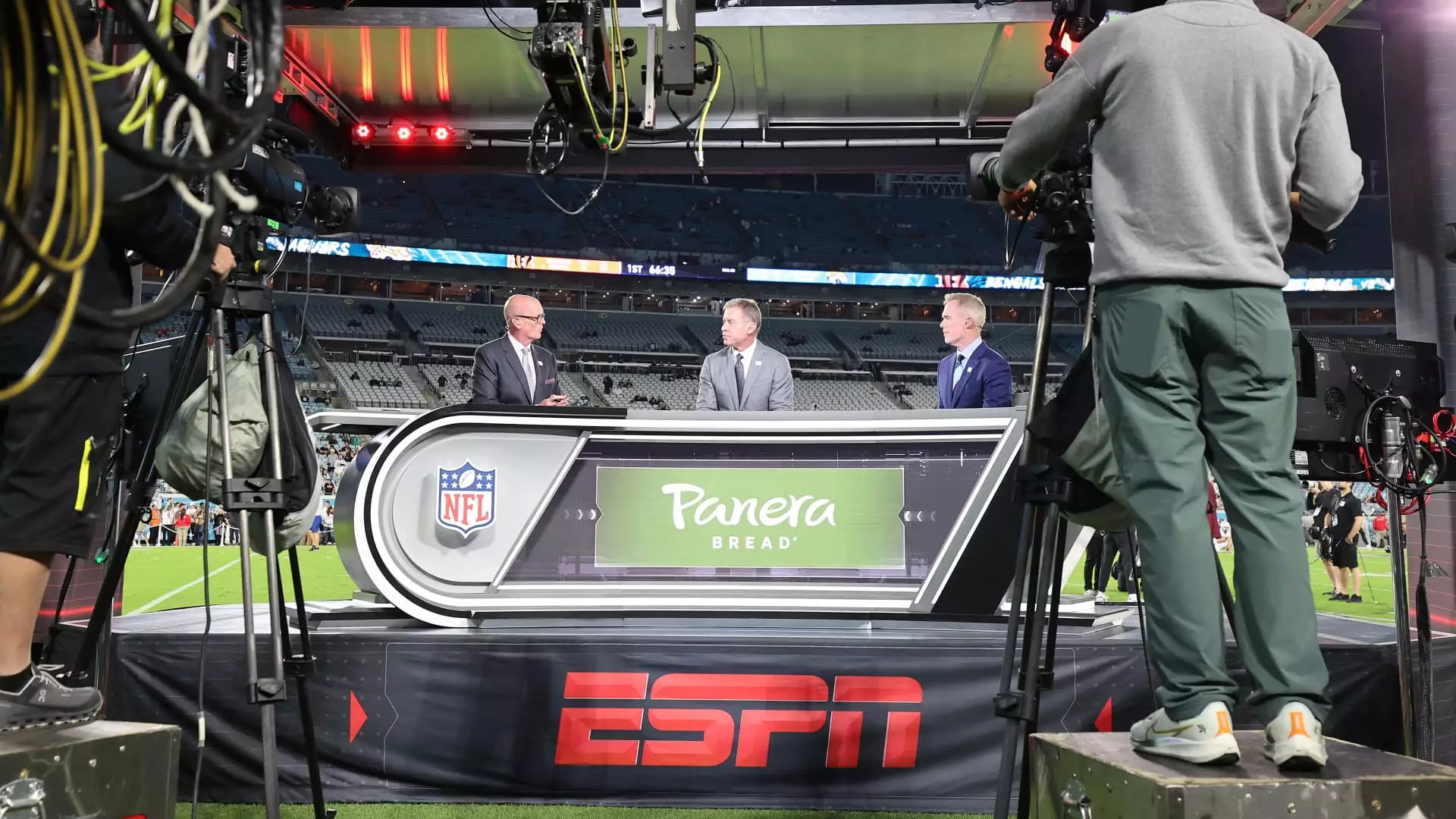The ongoing negotiation standoff between DirecTV and Disney has led to DirecTV customers facing the possibility of missing out on significant sports programming, including the NFL’s opening “Monday Night Football” game. As of Monday evening, Disney’s TV networks, including ESPN, FX, and ABC in certain markets, were unavailable to DirecTV customers. The dispute has arisen due to a disagreement over fees and bundling, with DirecTV pushing for genre-specific bundles, an option that Disney opposes.
The absence of Disney’s networks on DirecTV has resulted in customers missing out on major sporting events like the U.S. Open and the first full weekend of college football. Live sports remain a significant draw for audiences, leading to lucrative media rights deals that have made networks like ESPN some of the most expensive on television. The loss of access to these networks underscores the importance of sports content in the traditional pay-TV bundle, especially as customers increasingly migrate to streaming services.
The Legal Battle
In response to the dispute, DirecTV took legal action by filing a complaint with the Federal Communications Commission, accusing Disney of failing to negotiate in good faith. The lawsuit was supported by other players in the industry who raised antitrust concerns related to Disney’s sports streaming service, Venu. The legal wrangling highlights the complex interplay between media companies as they navigate the evolving landscape of content distribution and consumer preferences.
The Stakes for Both Parties
Both Disney and DirecTV have dug in their heels, each insisting on terms that align with their business interests. Disney has emphasized the value of its portfolio of television channels and programs, arguing that it will not enter into an agreement that undervalues its content. On the other hand, DirecTV has positioned itself as a champion of consumer choice and competition, pushing back against what it perceives as Disney’s anti-competitive demands.
The outcome of the DirecTV-Disney dispute remains uncertain, with potential ramifications for the broader media industry. While negotiations are ongoing, the lack of a resolution could have lasting implications for how content is packaged and delivered to consumers. As audiences continue to gravitate towards digital platforms, traditional media companies must grapple with the challenge of adapting to changing viewing habits and preferences.
The DirecTV and Disney carriage dispute serves as a microcosm of the larger tensions shaping the media landscape. The clash between these industry titans underscores the complexities of content distribution in an era of rapid technological change. As consumers demand greater choice and flexibility in how they access content, media companies must navigate a shifting landscape where traditional business models are being upended. The outcome of this dispute will not only impact DirecTV customers but also shed light on the future of media consumption in an increasingly digital world.

